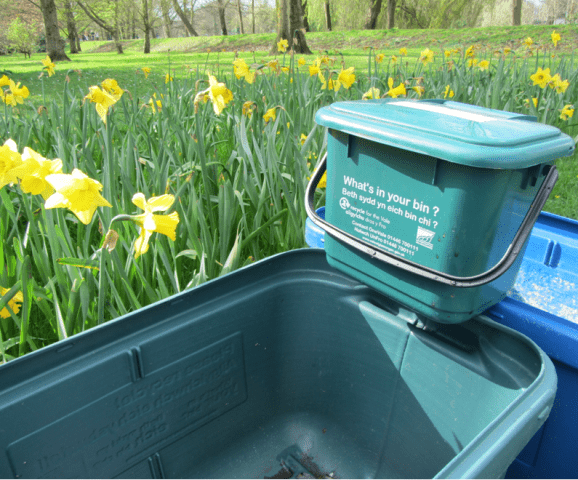A report from WRAP Cymru has claimed that source separated kerbside collections offer Welsh local authorities “the most cost effective approach” to achieving high dry recycling rates.

According to WRAP Cymru source-separated collections offer the greatest annual savings for local authorities
Commissioned by the Welsh Government, the report compares the cost of source-separated kerbside collections to commingled and two stream collections.
In order for local authorities to meet the Welsh recycling target of 70% by 2025, the research assumed weekly dry recycling and food waste collections and a fortnightly, 140 litre wheeled bin residual waste collection are needed.
Although source separated collections require the greatest initial outlay for councils with no existing infrastructure, WRAP Cymru claimed this offers the greatest annual savings, with post collection sorting costs much lower and material income greater than for other collection methods. Initial outlay payback time for all authority types would be under two years, the organisation claimed.
By switching from a commingled to a source-separated collection system, the research suggested that the annual savings achievable by authorities were in the region of between £900,000 and £1,200,000, depending on the rurality of the authority.
And, potential savings of between £1,000,000 and £1,300,000 could be achieved when switching from a twin stream collection to a source separated collection.
Welsh Government
The Welsh Government has long been a strong advocate for weekly separate dry recycling via a kerbside sort system, having first set out as this preferred method for waste collections in its ‘Collections Blueprint’ in 2011.
An independent review of the Collections Blueprint, conducted by Eunomia in March 2016, found it continues to offer benefits in terms of cost and material quality as well as its impact on recycling performance (see letsrecycle.com story).
As such, Welsh local authorities have been encouraged to adopt a source separated collection system, which many councils have now moved to. Last year, Welsh councils achieved a recycling rate of 60% (see letsrecycling.com story).
Carl Nichols, head of WRAP Cymru, said: “Whilst it must be noted that it may not be feasible for every Authority to make the same savings, our report shows that the potential overall annual savings of adopting the source separated collection method are significant, and that the initial outlay of switching over can be recouped within two years.”
WRAP Cymru’s research follows on from similar work carried out by WRAP UK on Greater Consistency in Household Recycling in England (see letsrecycle.com story).
Related links
The post WRAP Cymru backs case for separate recycling collections appeared first on letsrecycle.com.
Source: letsrecycle.com Waste Managment


